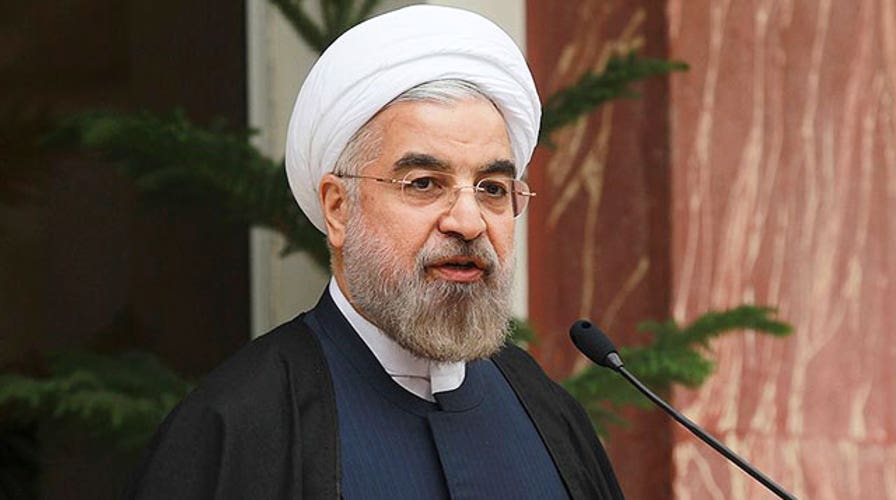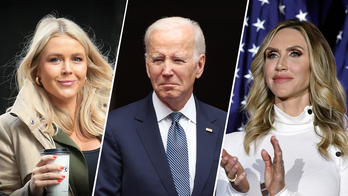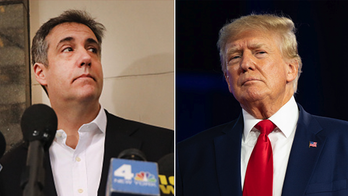Miller: 'Temporary' nuclear deal with Iran is just that
Former adviser to six secretaries of state sounds off
Now that the Obama administration has its nuclear deal with Iran, the big question is can Tehran be trusted to make good on its promises -- or, will it follow the path of North Korea?
"I am concerned this agreement could be a dangerous step that degrades our pressure on the Iranian regime without demonstrable actions on Iran's part to end its pursuit of a nuclear weapons capability -- a situation that would be reminiscent of our experience over two decades with North Korea," Sen. John McCain, R-Ariz., said in a statement.
Critics of the newly struck deal with Iran cite the United States' bruising experience with North Korea over the past two decades. The rogue nation repeatedly led on the U.S. and other nations, only to renege time after time.
Israeli Prime Minister Benjamin Netanyahu, in labeling the six-month deal with Tehran as "an historic mistake," on Sunday invoked an infamous 2005 pact with North Korea. As part of that deal, Pyongyang agreed to abandon its nuclear program and join the Non-Proliferation Treaty in exchange for food and other aid.
North Korea conducted its first underground nuclear test a year later.
The 2005 deal, and its collapse, stands as just a snapshot of the turbulence that has marked talks with North Korea every step of the way. The Kim dynasty generally is regarded as more belligerent than the mullahs in Iran, but lawmakers skeptical about the Iran deal see warning signs from that experience, which dates all the way back to 1994, and before.
"Apparently, America has not learned its lesson from 1994 when North Korea fooled the world," Rep. Buck McKeon, R-Calif., chairman of the House Armed Services Committee, said in a statement. "I am skeptical that this agreement will end differently."
The six-month deal with Iran offered sanctions relief in exchange for a rollback of Tehran's nuclear program. But the concern among skeptics is that the various suspensions in parts of Iran's program are easily reversible.
The agreement would halt uranium enrichment above 5 percent and "neutralize" its stockpile of 20 percent enriched uranium. But critics say that is reversible. Plus the deal does not call for Iran to destroy any of its 18,000 existing centrifuges, or force Iran to ship existing stockpiles of enriched uranium out of the country.
North Korea, for the past two decades, has routinely duped negotiators about the status of its nuclear program.
The pattern of deception started in 1994, when the U.S. and North Korea agreed to a "framework," which called for North Korea to freeze plutonium production in exchange for various kinds of aid.
By 2002, that deal had fallen apart, with the U.S. accusing North Korea of defying the arrangement.
This was followed by the 2005 deal, and its subsequent collapse. Then again, in 2007, North Korea agreed to shut down its main Yongbyon reactor, a move which helped get it removed from the U.S. list of State Sponsors of Terrorism. North Korea began the process of disabling the plant, but then restarted its nuclear program again in 2008.
This was followed by two more nuclear tests, in 2009 and 2013. And reports emerged this past September that North Korea was potentially restarting a research reactor at Yongbyon.
Jim Walsh, a research associate with the Massachusetts Institute of Technology's Security Studies Program, said there are similarities but also differences with the Iran and North Korea talks.
He noted that North Korea was already much further along in its nuclear program than Iran when talks started in earnest. And he said there's another big difference when dealing with Iran.
"There's no China in the Iranian equation," Walsh said.
When dealing with Pyongyang, the U.S. always had to worry about the possibility of China jumping to North Korea's defense -- or North Korea attacking Seoul with its arsenal of missiles. The U.S. does not have similar fears with Iran. "If diplomacy fails, you still have another out," Walsh said, referring to the military option.
The Obama administration says that, in the case of Iran, it is prepared to ratchet up sanctions if Tehran does not live up to its end of the bargain.
"Huge challenges remain, but we cannot close the door on diplomacy and we cannot rule out peaceful solutions to the world's problems," Obama said Monday during a speech in San Francisco, defending the agreement.
Senators from both sides of the aisle have also threatened to pursue additional sanctions. Senate Majority Leader Harry Reid said Monday on "The Diane Rehm Show" that "if we need stronger sanctions, I am sure we will do that."
Aaron David Miller, with the Woodrow Wilson International Center for Scholars, warned Monday that another concern with the deal is it's unclear where it can lead.
Though the Obama administration says the six-month deal is meant to pave the way for a comprehensive solution, Miller said it's "virtually unimaginable" to think Iran would mothball its program or the U.S. would remove all sanctions -- calling the notion of reaching a long-term deal "fanciful."
FoxNews.com's Judson Berger contributed to this report.





